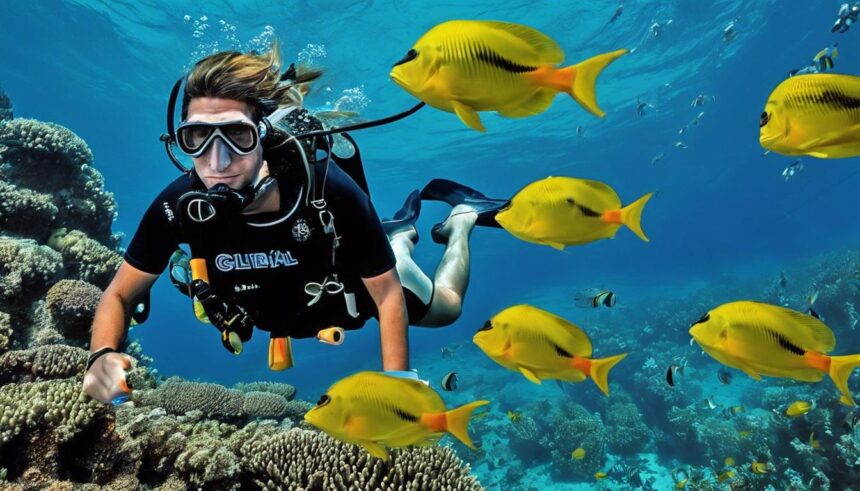At Oceans 5 Dive Resort in Gili Air, a new approach to scuba diving instruction prioritises realistic training and marine conservation, led by PADI Course Director Sander Buis.
In the stunning and serene setting of Gili Air, one of Indonesia’s picturesque Gili Islands, a revolutionary approach to scuba diving instruction is being implemented at the Oceans 5 Dive Resort. The PADI IDC (Instructor Development Course) Gili Islands program, a notable offering by the resort, is setting new standards in the dive training industry by focusing on realistic teaching practices, environmental consciousness, and robust practical application of diving skills.
The course, spearheaded by PADI Course Director Sander Buis, introduces a significant shift away from traditional dive instruction methodologies. Dissatisfied with the conventional systems that heavily prioritize theoretical knowledge, Buis has designed a curriculum that mirrors the unpredictable conditions and challenges divers face in real-world underwater environments. His teaching philosophy is grounded in the belief that mistakes are invaluable learning opportunities, and as such, should be used constructively to foster skill development and confidence in dive instructor candidates.
Central to the IDC Gili Islands program is an exceptionally strong emphasis on buoyancy control — a crucial skill for any diver, and especially for instructors in training. Mastery of buoyancy control is essential not only for the safety and comfort of both instructor and student but also for the preservation and minimal disturbance of marine life — a testament to the program’s commitment to conservation. The IDC Gili Islands training thereby not only enhances the teaching capabilities of its students but also ensures they walk away as advocates for ocean conservation.
The program’s instructional prowess is further backed by its exclusive status as the only PADI Career Development Centre on Gili Air. This designation underlines the centre’s unparalleled commitment to fostering career development within the diving industry. With monthly courses led by Sander Buis himself, the IDC stands out for its commitment to quality and excellence in dive training.
The implications of such an innovative approach to dive instruction are profound. Traditional dive training often places a significant emphasis on passing written assessments and completing confined water sessions, possibly at the expense of preparing candidates for the variable conditions they will face in open waters. By redirecting focus towards realistic, scenario-based training, the IDC Gili Islands program at Oceans 5 Gili Air equips aspiring instructors not only with the skills necessary to effectively teach and lead in dynamic underwater environments but also instills a deep-rooted sense of responsibility towards marine ecosystems.
Dive instruction, particularly in an era where environmental concerns are increasingly coming to the fore, demands more than just a cursory knowledge of diving techniques; it requires a holistic approach that considers the long-term impact of diving activities on aquatic life. This program’s forward-thinking curriculum, designed around situational learning and ecological sustainability, potentially sets a new global benchmark for dive training.
In conclusion, the PADI IDC Gili Islands at Oceans 5 Gili Air is more than just a training program — it is a transformative experience that molds proficient dive educators while simultaneously championing the cause of marine conservation. Through this innovative program, candidates are likely to emerge as highly competent instructors, embodying the skills, knowledge, and ethos necessary to guide the next generation of divers in both sustainable practices and safe dive explorations.





